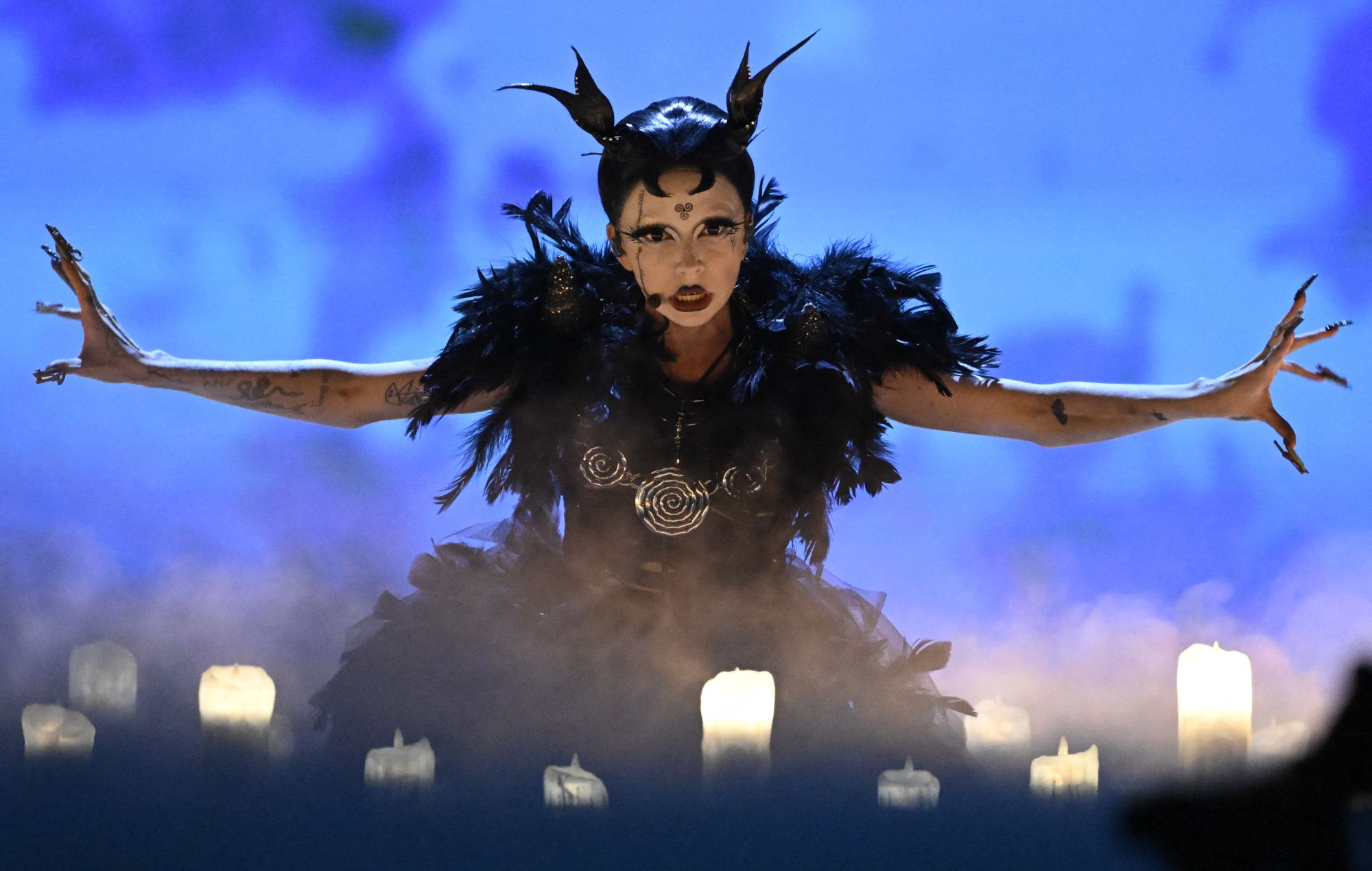Ireland’s Eurovision entry Bambie Thug has been forced to change their pro-Palestine message by the competition’s organisers.
READ MORE: Bambie Thug on Eurovision 2024: “I know that my heart is in the right place”
The non-binary contestant has become Ireland’s first finalist in the Eurovision Song Contest since 2018, winning a place in Saturday’s final (May 11) with a performance of their track ‘Doomsday Blue’ at yesterday’s (May 7) semi-finals.
However, the artist, whose real name is Bambie Ray Robinson, has criticised the competition’s organisers after being forced to change their pro-Palestine message ahead of the final. Originally, they wore body paint in Ogham script – an early Medieval alphabet – which translated to ceasefire and freedom. It came as a nod to the ongoing conflict in Gaza and in light of Israel’s inclusion in the competition.
According to a spokesperson for the European Broadcasting Union (EBU), the paint “contravened contest rules that are designed to protect the non-political nature of the event” (via Evening Standard).
Speaking of the change, Bambie Thug said: “It was very important for me because I’m pro-justice and pro-peace. Unfortunately, I had to change those messages today to ‘crown the witch’ only (which was an) order from the EBU.”
The grand final of the Eurovision Song Contest will be held in Malmö, Sweden this Saturday (May 11). Ireland has not won the contest in nearly 30 years, taking home the victory in 1996 with Eimear Quinn’s song ‘The Voice’.
The nation last reached the final six years ago, when it was represented by Ryan O’Shaughnessy, who placed 16th in Lisbon, Portugal.
Bambie Thug was chosen to represent Ireland after they won RTÉ’s Eurosong contest in January. Robinson penned the track with Cassyette, Wargasm’s Sam Matlock and songwriter Tylr Rydr.
They have been listed as in the top 10 favourites to win the competition this year, and told NME that they are hoping to “give the best performance I can and try to connect in those three minutes to those millions of viewers”.
There has been pressure on contestants, including Bambie Thug and UK representative Olly Alexander to boycott the event in solidarity with Palestine. However, in a collective statement, the two reaffirmed their pro-Palestine stance whilst announcing they would not boycott.
Robinson posted an additional statement due to being “an Irish person with a shared history of occupation and a queer individual”, writing: “My heart and solidarity has and always will lie with the oppressed, and I remain committed to supporting and using my platform to raise awareness and advocate for change”.
They also spoke to NME about navigating the controversy, saying: “It’s a lot when I know that my heart is in the right place and when it’s not my decision. I have had to take a break from social media because it is weighing on me. A lot of stuff is completely nasty and uncalled for.
“People should be coming for the EBU and for the broadcasters, not us as artists,” they added. “I stand by my statement and I am completely for Palestine, and I think it’s ridiculous that it’s gone on for so long. I think the world is quite removed from its heart and its consciousness right now.”
Bambie Thug, Ireland’s entrant for the Eurovision Song Contest 2024, performs at the Eurovision PreParty ES 2024 on March 30, 2024 in Madrid, Spain. (Photo by Patricia J. Garcinuno/Getty Images)
There have been a number of calls to boycott the competition from various countries. Over 1,000 Swedish artists called for Israel to be banned this year, such as Robyn, Fever Ray, and First Aid Kit, whilst over 1,400 Finnish music industry professionals have signed a petition to ban the country from taking part of the contest as well.
Israel is set to compete in the 2024 event still, although stirred controversy with their entry song. Originally titled ‘October Rain’, the song – performed by Eden Golan – appeared to contain references to the victims of Hamas’ October 7 attacks and was barred from performance due to breaking rules on political neutrality.
Though Israel originally threatened to withdraw from the competition if any changes were to be made, a call from Israeli president Isaac Herzog for “necessary adjustments” to ensure Israel’s participation has prompted their public broadcaster KAN to agree to amend the song. On March 9, Israel was confirmed to compete after changes were made to the lyrics and the song’s title was changed to ‘Hurricane’.
More recently Eurovision organisers have confirmed that they reserve the right to remove Palestinian flags and pro-Palestinian symbols during this year’s final, and have again defended their decision not to boycott Israel over the war in Gaza.
Jean Philip De Tender, the deputy director general of the European Broadcasting Union (EBU), said: “I fully agree it is a family event and the great thing about this music competition is that it’s all about values. It’s about uniting onstage all of these young talents, these participants, and they do great. It’s about diversity and inclusion.
“But there are competition rules and you need to follow the competition rules and take decisions based on these competition rules. If you were to exclude Kan outside of these competition rules, that would have been a political decision, as such, which we cannot take.”
The post Ireland’s Eurovision entry Bambie Thug forced to change the Pro-Palestine message by organisers appeared first on NME.



